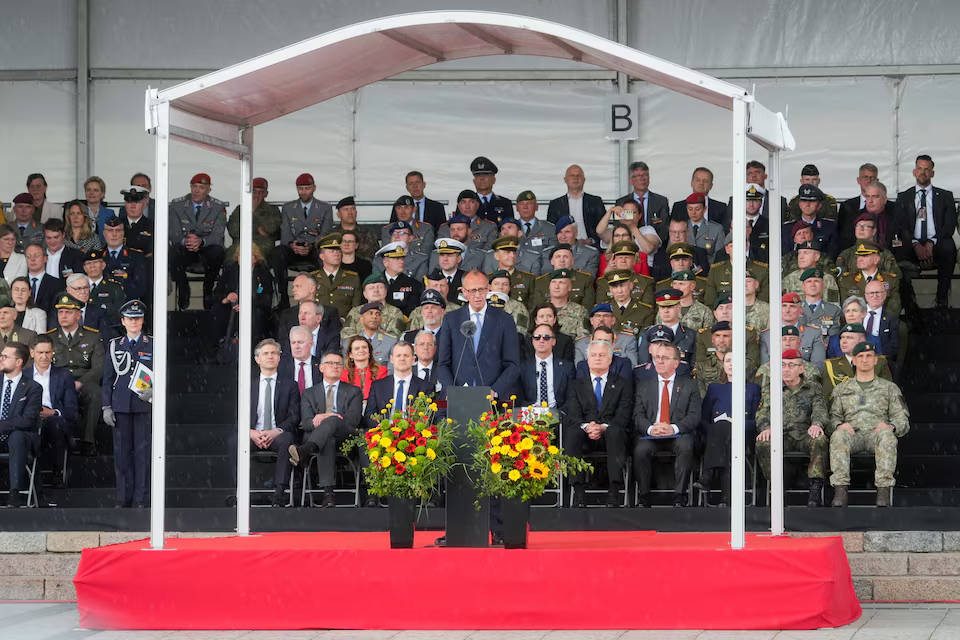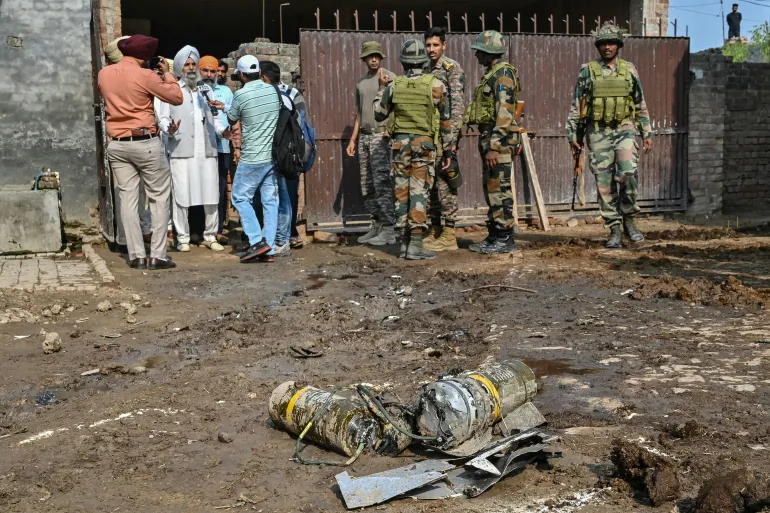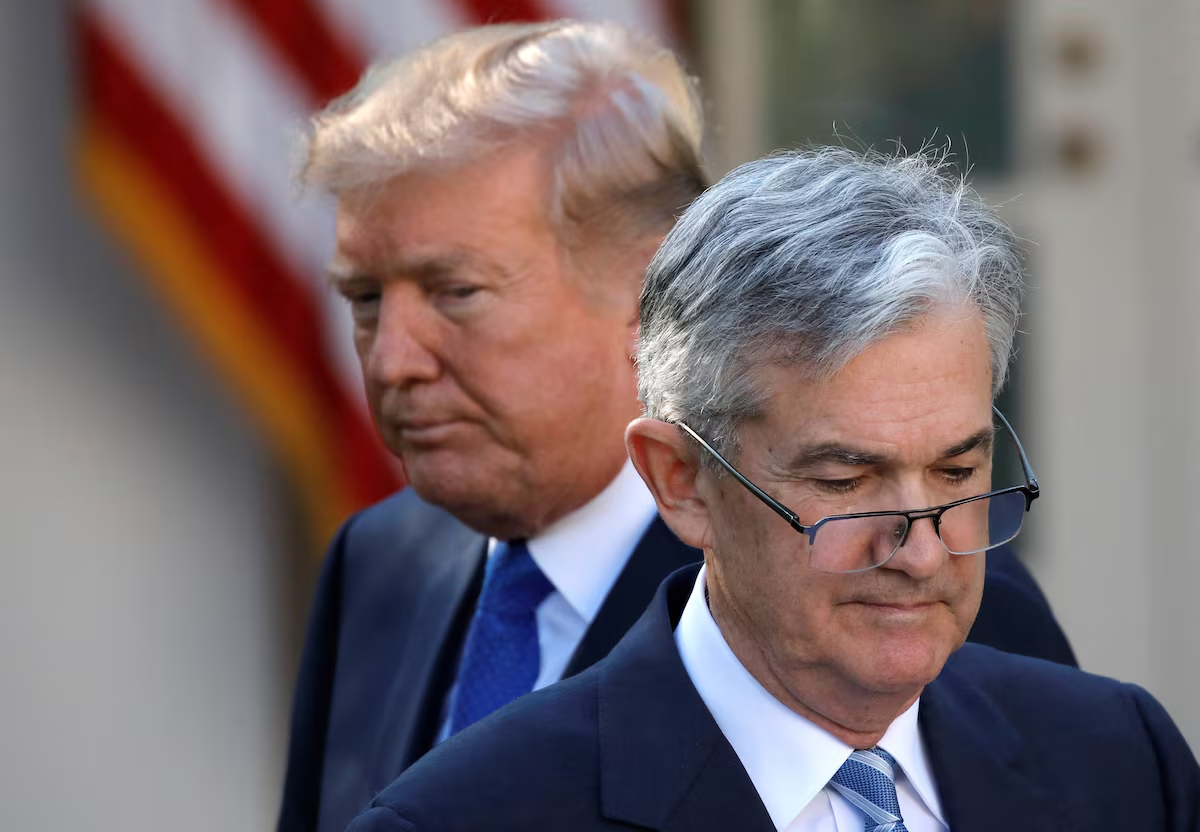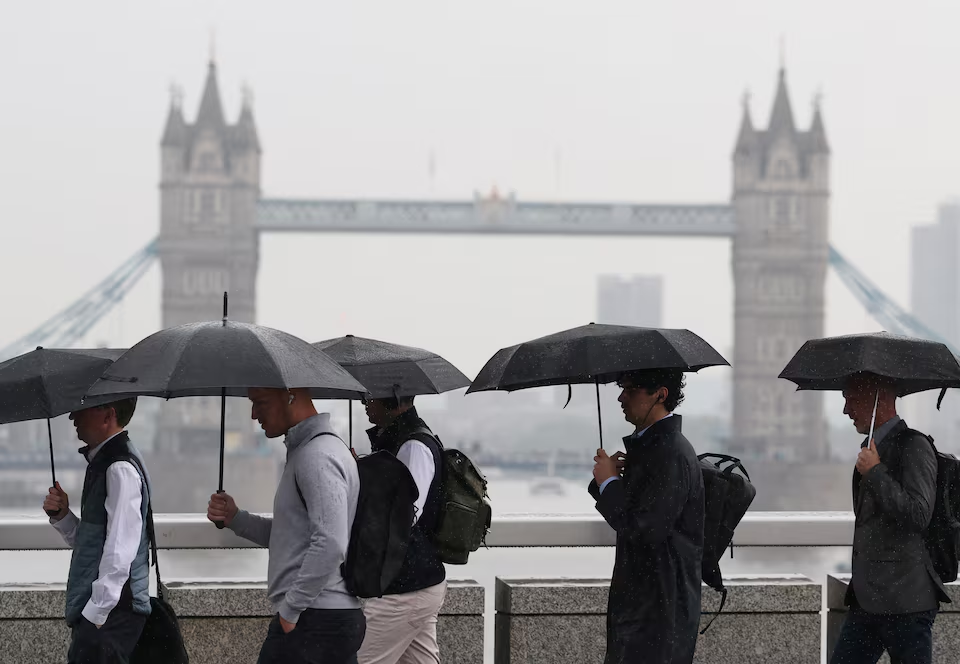During a high-profile visit to Lithuania, German conservative leader Friedrich Merz reaffirmed NATO’s collective defense commitment, declaring that all allies are united and ready to defend every inch of their territory amid growing concerns over Russia’s military posture in Eastern Europe.
Speaking on May 22, 2025, alongside Lithuanian President Gitanas Nausėda, Merz emphasized Germany’s solidarity with its Baltic allies and praised NATO’s enhanced troop presence in the region.
“NATO allies are determined to defend every square centimeter of alliance territory,” Merz stated. “There will be no grey zones — our response will be unified and immediate.”
🇱🇹 Visit Signals Stronger Germany-Baltic Ties
Merz’s visit comes amid increased anxiety across Eastern Europe about potential Russian aggression once the war in Ukraine reaches a conclusion. Lithuania, which borders Russia’s Kaliningrad exclave, has repeatedly warned of Russian military buildup and hybrid threats, including cyberattacks and disinformation.
Nausėda welcomed Merz’s show of support and called for further strengthening of NATO’s eastern flank, including permanent German deployments in the Baltics.
“Germany is a key partner in ensuring the security of our region,” the Lithuanian president said. “We appreciate this commitment to deterrence and defense.”
🪖 NATO’s Forward Presence
Germany currently leads a NATO battlegroup in Lithuania, part of the alliance’s Enhanced Forward Presence (EFP) mission, which also includes troops from the Netherlands, Norway, and other allies. The German government is weighing proposals to transition the deployment from a rotational to a permanent force, a move Baltic leaders say is vital to counter Russia’s threat.
Merz — who leads the opposition Christian Democratic Union (CDU) but is considered a potential future chancellor — used the visit to signal bipartisan German support for NATO commitments, regardless of Berlin’s domestic political shifts.
⚠️ Regional Tensions Persist
The visit took place as Russia continues to pressure NATO’s eastern borders through military drills, aerial incursions, and disinformation campaigns. Polish, Estonian, and Latvian officials have joined Lithuania in demanding a more robust NATO footprint in the region.
Analysts say Merz’s visit sends a clear message of alliance unity at a time when Russia may attempt to test NATO resolve through provocations or gray-zone tactics in vulnerable border regions.
🌍 Broader NATO Dynamics
The visit also comes ahead of the upcoming NATO summit, where member states are expected to debate defense spending, long-term troop basing strategies, and military aid for Ukraine. Merz indicated that Germany will continue to support Ukraine “as long as it takes,” aligning with Chancellor Olaf Scholz’s current policy.
Germany, despite criticism early in the war, has become one of Ukraine’s largest military donors and is now a central player in shaping Europe’s defense architecture.
⏭️ What to Watch
- Final decisions on German troop basing in Lithuania and Baltic states
- NATO summit agreements on permanent eastern deployments
- Russia’s military movements near Kaliningrad and Belarus
- Broader shifts in Germany’s defense posture under current and future leadership
- Eastern European allies’ push for faster NATO integration steps for Ukraine
As the war in Ukraine grinds on, Merz’s visit underscores a critical message: NATO’s eastern border is not just a line on a map — it’s a red line for collective defense. With Germany stepping forward to reinforce deterrence, the alliance’s unity and resolve remain key to Europe’s security in an increasingly volatile region.
Source; Reuters



